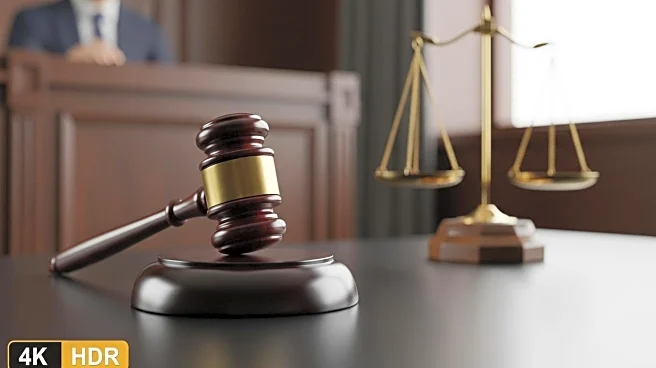What's Happening?
U.S. Judge Jorge Alonso has scheduled trials for November 3, 2025, concerning the 2019 crash of a Boeing 737 MAX8 jet in Ethiopia. The crash resulted in the deaths of 157 people from 35 countries. Two lead cases will be heard: one involving a 28-year-old mother from Kenya and another involving a 36-year-old woman from India. The Kenyan case is represented by Robert A. Clifford of Clifford Law Offices, while the Indian case is represented by Elizabeth Crawford of Kline & Specter. Mediation attempts have failed, prompting the trial. Boeing has acknowledged responsibility for the crash but has not settled with the families, who are seeking justice and accountability.
Why It's Important?
The trial is significant as it addresses Boeing's accountability for the crash, which has been a major point of contention. The outcome could impact Boeing's reputation and financial liabilities, as well as set precedents for corporate responsibility in aviation disasters. Families affected by the crash are seeking justice, highlighting the emotional and financial toll on victims' relatives. The trial underscores the importance of corporate accountability and the legal system's role in addressing grievances from international incidents.
What's Next?
The trial is set to begin with jury selection on November 3, 2025. If the lead cases settle, three additional cases are prepared to proceed. The trial will be closely watched by stakeholders, including aviation industry experts, legal professionals, and families of the victims. The proceedings may influence future aviation safety regulations and corporate practices. Boeing's response and potential settlements could affect its business operations and public perception.
Beyond the Headlines
The trial raises ethical questions about corporate responsibility and the extent to which companies should be held accountable for preventable disasters. It also highlights the challenges faced by families seeking justice across international borders, emphasizing the need for a fair and transparent legal process. The case may lead to long-term changes in how aviation companies handle safety and crisis management.









